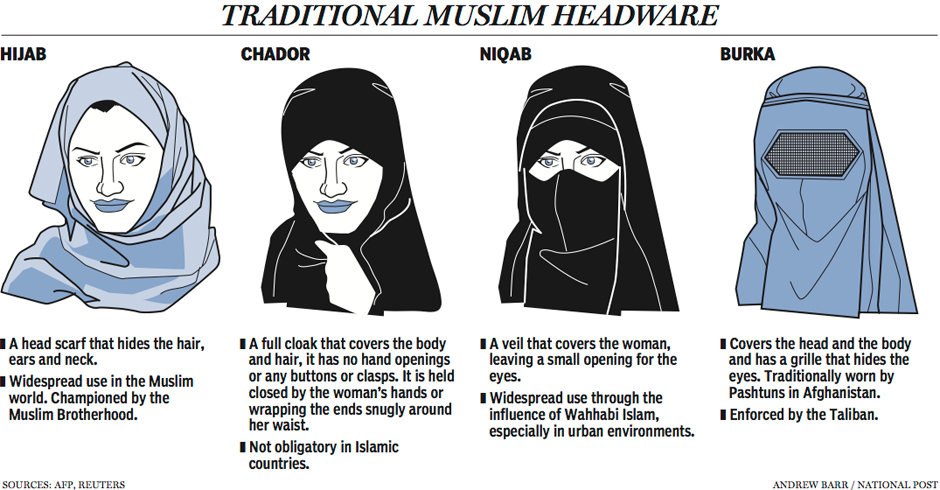Recently, Johan Slåttavik, who proudly claims to be “Norway’s worst web troll,” posted this photo on a Norwegian nationalist group’s Facebook page with the caption “Hva tenker folk om dette?” or “What do people think about this?”
 Islamophobes responded in droves.
Islamophobes responded in droves.
Predictably, comments included a call for burqas — a traditional outer garment worn by Afghani women to cover their bodies when in public — to be banned because they could be concealing weapons or bombs. Members of the group referred to the photo’s content as “frightening” and “disgusting.”
But the group saw what they wanted to see — an image of Muslim women wearing burqas — that they used to fuel their far-right rhetoric.
Look closely: The photo shows empty seats on a bus.
Last week, I was in downtown Munich and noticed quite a few Muslim women covered from head to toe walking in the pedestrian zone with their tee-shirt wearing husbands, small children in tow. My curiosity was piqued by the increased presence of Middle Eastern families in a city I hadn’t been to in more than 30 years.
So, I did some research.
Guess what? Those conservatively clothed women aren’t here to blow up your city. They’re likely here for medical treatments.
Germany, a country that benefits from the availability of quality health care at reasonable prices, has seen a surge in medical tourism since the United States started tightening its borders post-9/11.
Middle Eastern men and women seek out highly-specialized German clinics and combine medical treatment with their summer vacations in a more temperate climate, away from the sweltering heat of the Arabian Peninsula.
I can hear the outcry already.
But here’s the thing. These are not refugees straining the health care system. These are self-paying clients whose visits to the country contribute to the economy.
In 2015, medical tourists brought in “1.2 billion euros in revenues, which were invested back in the German health care system” according to medical tourism expert, Jens Juszczak. This investment creates a win-win situation for medical tourists and German citizens alike.
And it’s not only the health care system that has been buoyed by medical tourism.
In Munich, a city that sees more than 120,000 visitors from Gulf Cooperation Council nations each year, it is estimated that 70 percent of these are medical tourists. That’s 84,000 tourists from the region that are staying in the hotels, eating in local restaurants, and visiting the city’s high-end shopping district.
So the next time you see a woman in traditional Muslim attire, don’t listen to the rhetoric of the far right.
Listen to the sounds of medical clinics opening their doors to welcome patients helping to make Germany’s economy one of the healthiest in the world.
The details:
• It’s difficult to find precise figures, but about 84,000 foreign patients from the Gulf States come to Munich for treatment and vacation, according to German government data. That’s up from about 50,000 patients in 2006. Another 115,000 come to Germany for ambulatory care. Arab patients come from the Gulf States including United Arab Emirates, Saudi Arabia, Kuwait, Qatar and Oman.
• “Munich – thanks to the city’s medical facilities and array of luxury boutiques – has helped Germany race past France and Britain to become the European destination of choice for tourists from the Gulf states,” according The National website. Visitors from the Middle East spend four times more than other foreigners, according to the post.
• German hospitals cater to patients from Gulf Cooperative Council nations. Medical tourism includes translation services and support, prayer rooms and accommodations for family members.
About the author: Beth Hoke is rejoining the expat life after spending her childhood in Europe and the United States, then settling in Chicagoland to raise two daughters.
Now an empty nester, she is roaming Europe, armed with a TEFL certificate and an online position teaching English for EF.
Beth has been traveling around Europe for nine months. She’s filed posts from six countries including Italy, Germany, Croatia and Madeira, Portugal.















